UPDATE: Charles Lewis’ juvenile lifer hearing scheduled for Friday, Feb. 1 was adjourned with conflicting reasons provided to the parties, until Friday, Feb. 15 at 10:30 am. NOTE: Before going, call court Fri. a.m. to find out whether hearing will happen, in light of numerous prior cancellations.
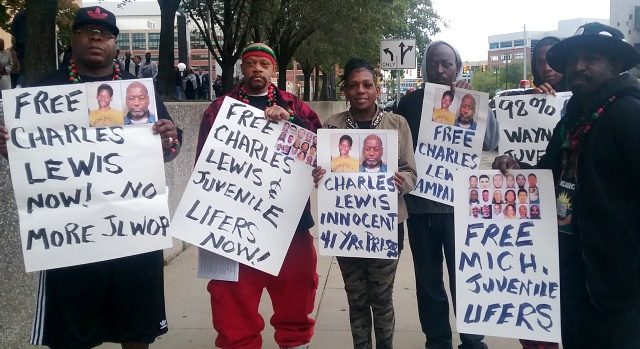
Some of Charles ‘K.K.’ Lewis supporters rally outside courthouse.
FEB. 1 hearing unexpectedly adjourned until Friday, Feb. 15 at 10:30 a.m.
Lewis may be first of “Michigan 200” juvenile lifers recommended for LWOP to face mitigation hearing
Chief issue at hearing: whether Judge Lillard will certify grossly incomplete court file, and then hold a mitigation hearing and re-sentencing
View Michigan Supreme Court oral arguments on Harold Walker case heard by Judge Lillard; shocking details of his trial are discussed
By Diane Bukowski
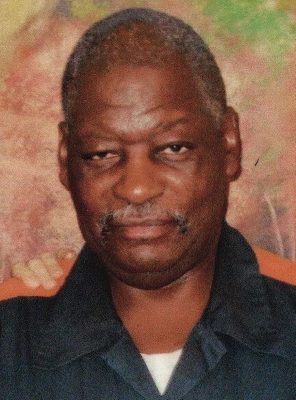
Charles K.K. Lewis
UPDATE: Friday, Feb. 1–The juvenile lifer hearing scheduled for today was adjourned with conficting reasons provided to the parties, until Friday, Feb. 15 at 10:30 am.
Judge Qiana Lillard told VOD that attorney Schulman asked for the adjournment because he had trials scheduled for Wednesday and Thursday when the court was shut down during the freezing cold snap.
She said the hearing would be set for Thursday, Feb. 14. Attorney Schulman told Lewis in an email that it will be held Fri. Feb. 15, which is the date now listed on Lewis’ Register of Actions.
Lewis reports that Macomb CF personnel told him that the hearing was adjourned because the court was still closed. His lawyer Sanford Schulman did not notify him of the change.
DETROIT – Charles Lewis may be one of the first of 200 Michigan juvenile lifers, if not the first, to undergo the ill-defined process of a “mitigation hearing” before Third Judicial Circuit Court Judge Qiana Lillard, according to his attorney Sanford Schulman. The juvenile lifers still behind bars, two-thirds of the total, are those for whom county prosecutors recommended renewed “life without parole” sentences.
Lewis waited in the video room at Macomb Correctional Facility for five hours Jan. 24 for a hearing on his case which did not happen because the judge’s chief assistant had fallen on the ice outside the Frank Murphy courthouse the day before. Evidently no one else knew how to operate the equipment for Lillard’s “video courtroom.” He received no notification from Atty. Schulman
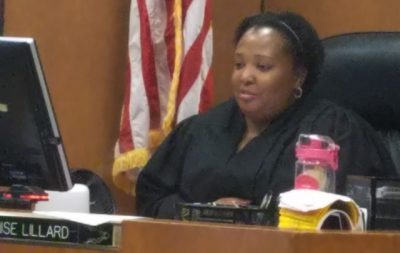
Judge Qiana Lillard at hearing Sept. 28, 2018.
His hearing is now set for Friday, Feb. 1, at 10:30 a.m. (Note update above showing hearing that day was once again adjourned and moved t0 Fri. Feb. 15 at 10:30 AM.)
The utter confusion of the last weeks is likely a precursor to what is to come. A chief issue is Judge Lillard’s certification of a hastily-thrown together file meant to replace five boxes of Lewis’ official court files mysteriously “lost” around 2012. The official computerized record of his case has likewise been wiped out for all years between 1976 and 1999. It currently shows that he was convicted April 3, 2000 in front of Judge Gershwin Drain.
Judge Lillard is to rule on a motion filed by Assistant Prosecutor Thomas Dawson ro certify a re-constructed file, before proceeding further with Lewis’ re-sentencing, which has been going on since March, 2016. Dawson based his motion on a court rule, MCR 3.607.
Lewis wrote Schulman regarding the motion, “I studied MCR 3.607 and researched it upside down. There is not a single reported criminal case that cites to MCR 3.607 regarding lost files, transcripts, and records. That Court Rule is a Civil Court Rule that was designed to deal with lost civil documents.”
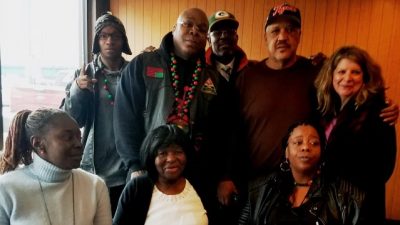
Some of many Charles K.K. Lewis supporters who gathered after court cancellation March 6, 2018. (Bottom row l to r) Vivian Kincaid, mother Rosie Lewis, Geri Jones; (Top row l to r) Stephan, Jelekeco Whitaker, Pancho, Man Vaughn. Elena Herrada
He said further that the judge’s certification of his file means, among other issues, that she is certifying:
· That the first trial transcript is incomplete and does not have a record that explains why the first jury was dismissed. Judge Deborah Thomas said in a 2006 opinion that this meant Lewis should have been considered acquitted and subject to double jeopardy.
· That there is no transcript of proceedings held before Judge Ollie Bivins, on May 23, 1977.
· That there is no voir dire transcript of proceedings held on July 5, 1977 (where Lewis was allegedly finally convicted).
· That there is no record of an appeal of right, or the appointment of appellate counsel, or an appellate brief or a Court of Appeals disposition.
· That there is a transcript in the file of a 1980 Pearson evidentiary hearing, but there is nothing in the file leading up to the Pearson evidentiary hearing. There is no record of any prior brief, motions, or court opinions that lead to the Pearson evidentiary hearing. And, there is no judicial resolution of the Pearson issues.
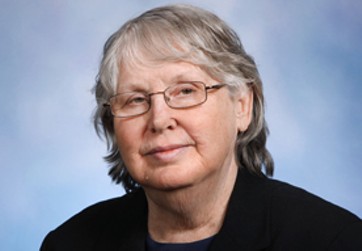
Atty. Rosemary Robinson went on to become a state representative.
With regard to the Pearson hearing issue, state law dictates that such hearings, which supplement necessary evidence left out at trial, are to be held within 30 days after the request by the defense.
Atty. Rosemary Robinson successfully appealed Judge Edward Thomas’ original denial of the hearing, but Judge Thomas then removed her as attorney in the case. The hearing was still was not held until five months later, meaning Lewis’s case should have been dismissed in 1981.
But now Lewis, who arguably should have had his case dismissed twice while he was still a teen-ager, faces re-sentencing by Judge Lillard decades later, in the wake of a Michigan Supreme Court ruling in Hyatt/Skinner (2018), despite lack of proof of his original conviction and sentence.
Hyatt/Skinner said essentially that a judge does not have to find that the defendant is a “truly rare” and incorrigible juvenile, with less culpability than an adult, as defined by the U.S. Supreme Court in Miller v. Alabama (2012) and Montgomery v. Louisiana (2016). It says the sentencing judge does not have to cite any mitigating factors other than those considered by the jury at trial.
The re-sentencing of Lewis and his fellow 200 juvenile lifers was deliberately held up for the Michigan Supreme Court ruling, written by conservative Justice Stephen Markman. Judge Bridget McCormack, formerly of the Michigan Innocence Clinic, and Justice Richard Bernstein, issued a dissenting opinion. Both cases are awaiting certiorari at the U.S. Supreme Court requested by the defense.
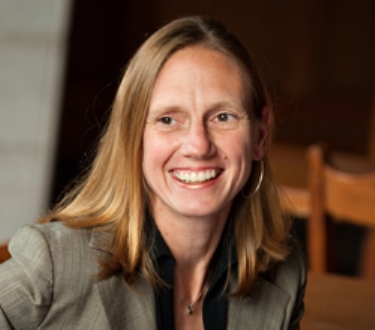
Atty/Prof. Kimberly Thomas
In her 2017 treatise, “Random if not ‘Rare’? The Eighth Amendment Weaknesses of Post-Miller Legislation,” Attorney Kimberly Thomas, of the University of Michigan Law Clinic, critiques state legislation across the U.S. that arose in response to the Miller and Montgomery rulings. She is the attorney of record for both Kenya Ali Hyatt and Tia Marie Mitchell Skinner.
“While state legislative responses to Miller have eliminated the automatic imposition of life without parole on juveniles, they have largely failed to provide for any guidance or limitations on the sentencer. In other words, it remains to be seen whether or not states will make life without parole ‘rare,’ as the sentencing laws established in its wake set up systems in which the sentence of life without parole could certainly be imposed arbitrarily and inconsistently.
She adds, “A look at the state legislation passed post-Miller suggests, when viewed against a backdrop of Eighth Amendment capital punishment law, that many of these statutes make a broader group of offenses eligible for LWOP for youth than for the death penalty for adults.
“Further, the legislation does not narrow the categories of youth eligible for LWOP or provide clear or objective limitations to reduce the potential for arbitrary or discriminatory imposition of LWOP, and does not provide for heightened appellate review or privileged access to appellate courts for youth sentenced to life without parole.”
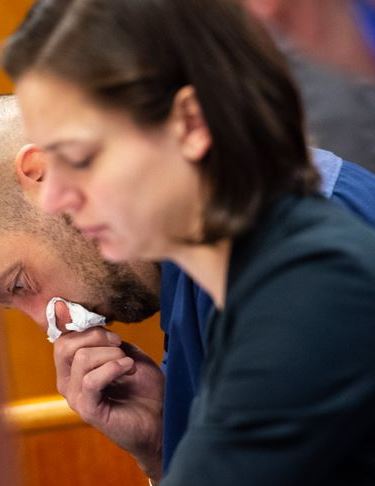
Sofia Nelson at recent juvenile lifer hearing.
Additionally, Lewis’ attorney Schulman has failed to respond to an inquiry from VOD regarding what experts are being hired in Lewis’ case, or even if and when a mitigation hearing will be held. One was originally scheduled for May 15, but has since been canceled by Judge Lillard.
In a Michigan Bar Journal article by Sofia Nelson, Justice Delayed? What’s Next for Michigan’s Juvenile Lifers, the author detailed the complexities involved in mitigation hearings.
“Because many of these cases are decades old, developing mitigating evidence is both challenging and labor intensive,” Nelson says. “The Michigan Supreme Court has highlighted the unique nature of Miller hearings and has recognized the need for adequate resources: ‘[J]uvenile defendants must be afforded the opportunity and the financial resources to present evidence of mitigating factors relevant to the offender and the offense, [and] psychological and other evaluations relevant to the youthfulness and maturity of the defendants must be allowed[.]
“The Court has repeatedly compared the imposition of life without parole on a juvenile to the death penalty. . . In addition to time, these cases will cost money. As the Michigan Supreme Court made clear in People v Kennedy, due process requires the appointment of experts at the government’s expense for indigent criminal defendants when it is demonstrated that it is reasonably probable that the expert will be of assistance, and the denial of that assistance will render the proceedings fundamentally unfair.

Michigan COA Judge Elizabeth Gleicher
“The Michigan Court of Appeals is currently considering a juvenile lifer case in which the defense asked for $42,650 for a mitigation specialist and the court approved only $2,500.
Concurring in the grant of leave to appeal, Judge Gleicher wrote: ‘The hearings for juvenile offenders seeking parole sentences involve complicated legal and factual issues, and potentially, volumes of legal, psychological, educational, vocational, and disciplinary information. The defendant and his counsel likely lack the skills and training to adequately evaluate and analyze this evidence. A meaningful hearing depends on meaningful input from experts. While $42,650 represents a considerable sum, it may be closer to being realistic than the $2,500 approved.
‘Necessary budgets will be case specific. For example, I have found Michigan trial court orders approving funding requests for more than $52,000 in one case, more than $15,000 for a mitigation investigation alone, and in excess of $15,000 for a single necessary expert.'”
Below are Michigan Supreme Court oral arguments held in the case of Harold Walker, which was before Judge Qiana Lillard at trial. Discussion relates to her shocking handling of his trial.
For documents cited in article, go to:
Prof. Kimberly Thomas’ article on weaknesses of JLWOP state legislation nationally:
Atty. Sonia Nelson’s Michigan Bar Journal article:
http://voiceofdetroit.net/wp-content/uploads/Justice-Delayed-MI-Bar-Juvenile-Lifer-Article.pdf
#FREECHARLESLEWISNOW, #FREEMICHIGANJUVENILELIFERSNOW, #ENDMASSINCARCERATION, #ENDSCHOOLTOPRISONPIPELINE
For previous story on Lewis’ adjourned Jan. 24 hearing, see:
FREE AT LAST? PROS. SHATTERS PLAN FOR CHARLES K.K. LEWIS’ RELEASE; HEARING THURS. JAN. 24 @ 10:30 AM
Other related stories:
#TAKETHEKNEE! FRI. OCT. 6; FREE CHARLES LEWIS, INNOCENT, IN PRISON 41 YEARS; COURT FILES DESTROYED
‘ROGUE JUSTICE!’ FREE ANOTHER INNOCENT DETROITER, CHARLES LEWIS, NOW! HEARING WED. FEB. 15 @ 9 AM.





It’s about time that Charles Lewis and many former child offenders receive the fairness that the law mandates. I just hope that this hearing for Charles Lewis be meaningful and another wild goose chase as this has been the norm in this case and many others that are similarly situated.
It is very disturbing that it has been approximately 7 years since the United States Supreme Court outlawed mandatory life without parole for children and 3 years since that same court applied to the state of Michigan and there are still people who committed crimes when they were under the age of 18 that are still incarcerated and wait for their resentencing. Elections are fastly approaching and it is time to send a clear message, shape up or ship out.